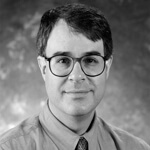
James A. Bernal, 45, once made the city of Schertz’s streets and parks safer and more beautiful. He laid concrete for sidewalks, repaired streets, mowed the grass in the parks and worked on plumbing. He operated heavy equipment. “In a city that’s kind of small, we were considered public works, which is everything just about,” he said.
But sadly this active man’s heart was giving out. Bernal became so short of breath in 1998 that he was diagnosed with hypertrophic cardiomyopathy (abnormal enlargement of the left ventricle) and went on disability. His wife, Maria, became the family’s sole wage earner. The shortness of breath, fatigue and chest pain literally trapped James in his body. Gradually his home activities, such as gardening and chopping firewood, diminished. So did his sleep. Many nights, he was afraid he would not wake up the next morning.
But now he is out working in his yard once again and is rediscovering fishing.
Earlier this year Bernal underwent alcohol septal ablation, a treatment performed by Marc D. Feldman, M.D., associate professor of medicine at the Health Science Center and associate director of the Cardiac Catheterization Laboratory at University Hospital. Dr. Feldman also is affiliated with the South Texas Veterans Health Care System.
“This is a special heart catheterization procedure in which an alcohol solution is injected directly into a small branch of the coronary arteries,” Dr. Feldman said. “This causes a localized heart attack in the overgrown heart muscle responsible for the symptoms of hypertrophic cardiomyopathy. As a result, the muscle size is reduced. This is offered if medication fails to control symptoms.”
Bernal has a strong family history of heart disease and type 2 diabetes. His uncle has had three pacemakers implanted and his older brother, who was a diabetic and on dialysis for end-stage kidney disease, died Jan. 24. He would have been 51 on Feb. 13.
“It’s strange to have to have a heart attack to get better,” Bernal said in the front yard of his East Side home. “I had never had a heart attack. I felt the tightness in my chest when they injected the alcohol, but I was fine after that. They told me it would be coming.”
Dr. Feldman used a quarter of a teaspoon of 98 percent alcohol to kill the excess muscle that was getting in the way of the heart ejecting oxygenated blood. “He immediately was less short of breath, even on the cath lab table,” Dr. Feldman said.
The procedure is geared to adult patients and is not usually done in children. William Spencer, M.D., a South Carolina cardiologist who has performed more than 600 of the alcohol septal ablation procedures, came to San Antonio to observe as Dr. Feldman performed Bernal’s case – the first to be done at University Hospital. The procedure also is available at the South Texas Veterans Health Care System’s Audie Murphy Division.
The Hypertrophic Cardiomyopathy (HCM) Clinic at the Health Science Center is an important new resource. “We’d like to draw more patients from throughout the state, since we’re the only site designated as a comprehensive HCM center in Texas,” Dr. Feldman said. “We are very qualified to screen who should have this procedure and who should not have it, and who is most likely to benefit. Just because you have HCM does not mean you have run out of options.”
Patients, families and health care professionals can learn more about the Hypertrophic Cardiomyopathy Clinic at cardiology.uthscsa.edu/hcm/ or by calling (210) 592-0361.
Bernal responded well to the alcohol septal ablation procedure. His heart used to beat irregularly, which he felt as flutters. This is much improved, he said. Although he has diabetes and is having kidney trouble, his improved breathing capacity is encouraging to him. “I hope I’m getting my second wind here,” he said. “Today I washed my truck by hand, which is pretty good.”

